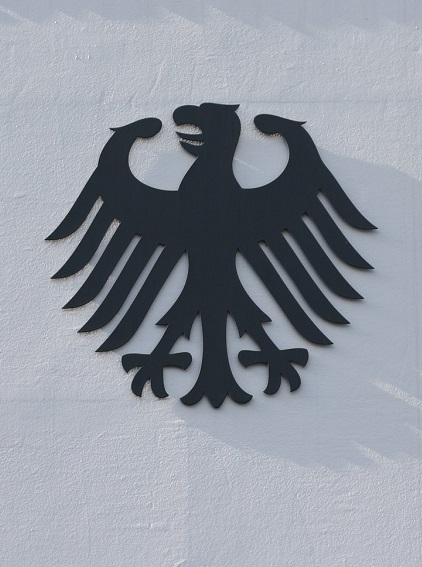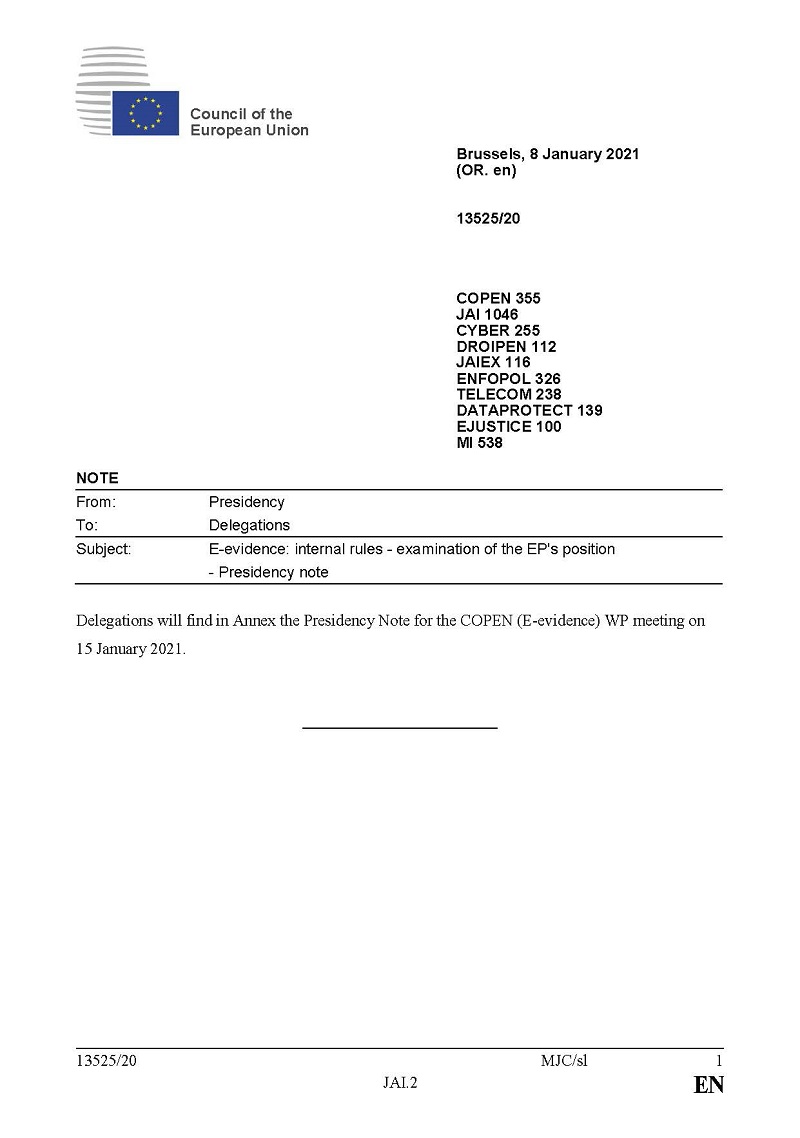Court of Justice: Impermissible to put forced removal of minors 'on hold' to sidestep safeguards
Topic
Country/Region
14 January 2021
The Court of Justice of the EU (CJEU) has ruled that EU member states wishing to deport minors must verify that adequate reception facilities exist in the destination state, and that they cannot sidestep this requirement by issuing a removal order against a minor but only seeking to enforce the decision when they become an adult, when those safeguards no longer apply. The ruling comes after a court in the Netherlands, faced with an appeal by an individual handed a removal order as a minor but facing enforcement of the order as an adult, asked the CJEU to provide an interpretation of the relevant provisions of the EU Return Directive.
Support our work: become a Friend of Statewatch from as little as £1/€1 per month.

Below: Press release issued by the CJEU on 14 January 2021, also available as a PDF.
Judgment: Case C‑441/19 (pdf)
Before issuing a return decision in respect of an unaccompanied minor, a Member State must verify that adequate reception facilities are available for the minor in the State of return
Moreover, if adequate reception facilities are no longer guaranteed at the stage of removal, the Member State will not be able to enforce the return decision
In June 2017, TQ, an unaccompanied minor who was then 15 years and four months old, applied in the Netherlands for a fixed-term residence permit on grounds of asylum. In the context of that application, TQ stated that he was born in Guinea in 2002. Following the death of his aunt with whom he lived in Sierra Leone, TQ came to Europe. In Amsterdam (Netherlands), he claims to have been the victim of human trafficking and sexual exploitation, as a result of which he now suffers serious psychological problems. In March 2018, the Staatssecretaris van Justitie en Veiligheid (State Secretary for Justice and Security, Netherlands) decided ex officio that TQ was not eligible for a fixed-term residence permit, the referring court specifying that TQ does not qualify for refugee status or subsidiary protection. In accordance with Netherlands law, the decision of the Staatssecretaris van Justitie en Veiligheid constitutes a return decision.
In April 2018, TQ brought an appeal against that decision before the referring court, claiming inter alia that he does not know where his parents live, that he would not be able to recognise them upon his return, that he does not know any other family members and that he does not even know whether he has any such members.
The referring court explains that the Netherlands legislation draws a distinction based on the age of the unaccompanied minor. As regards minors under the age of 15 on the date on which the asylum application is lodged, an investigation as to whether there are adequate reception facilities in the State of return, provided for Article 10 of Directive 2008/115,1 is carried out before a decision on that application is adopted, those minors being granted an ordinary residence permit where there are no such reception facilities. For minors aged 15 years or more on the date on which the asylum application is lodged, like TQ, such an investigation is not carried out, the Netherlands authorities appearing to wait until the minors in question reach the age of 18 in order subsequently to implement the return decision. Thus, during the period between his or her application for asylum and reaching the age of majority, the residence of an unaccompanied minor aged 15 years or more is irregular but tolerated in the Netherlands.
It is in that context that the referring court decided to refer questions to the Court on whether the distinction drawn by the Netherlands legislation between unaccompanied minors over the age of 15 years and those under the age of 15 years is compatible with EU law.
Findings of the Court
The Court states that, where a Member State intends to issue a return decision against an unaccompanied minor under the ‘Return’ Directive, it must necessarily take into account the best interests of the child2 at all stages of the procedure, which entails a general and in-depth assessment of the situation of that minor being carried out. According to the Court, if the Member State concerned adopts a return decision without first being satisfied that there are adequate reception facilities in the State of return, the consequence would be that, although that minor was the subject of a return decision, he or she could not be removed in the absence of such facilities. Such a minor would thus be placed in a situation of great uncertainty as to his or her legal status and his or her future, in particular as regards his or her schooling, his or her link with a foster family or the possibility of remaining in the Member State concerned; this would be contrary to the requirement to protect the best interests of the child at all stages of the procedure. It follows that, if such reception facilities are not available in the State of return, the minor concerned cannot be the subject of a return decision.
The Court states, in that context, that the age of the unaccompanied minor in question constitutes only one factor among others in order to ascertain whether there are adequate reception facilities in the State of return and to determine whether the best interests of the child must result in a return decision against that minor not being issued. Accordingly, the Court states that a Member State may not distinguish between unaccompanied minors solely on the basis of the criterion of their age for the purpose of ascertaining whether there are such facilities.
The Court also holds that, in the light of the obligation for Member States to issue a return decision against any third-country national staying illegally on their territory3 and to remove him or her4 as soon as possible, the ‘Return’ Directive precludes a Member State, after it has adopted a return decision in respect of an unaccompanied minor and has been satisfied that there are adequate reception facilities in the State of return, from refraining from subsequently removing that minor until he or she reaches the age of 18 years. In such a case, the minor concerned must be removed from the territory of the Member State concerned, subject to any changes in his or her situation. In that regard, the Court states that, in the event that adequate reception facilities in the State of return are no longer guaranteed at the stage of the removal of the unaccompanied minor, the Member State concerned would not be able to enforce the return decision.
[1] Directive 2008/115/EC of the European Parliament and of the Council of 16 December 2008 on common standards and procedures in Member States for returning illegally staying third-country nationals (OJ 2008 L 348, p. 98; ‘the “Return” Directive’).
[2] See Article 5(a) of the ‘Return’ Directive.
[3] See Article 6(1) of the ‘Return’ Directive.
[4] See Article 8 of the ‘Return’ Directive.
Image: Court of Justice of the European Union
Our work is only possible with your support.
Become a Friend of Statewatch from as little as £1/€1 per month.
Spotted an error? If you've spotted a problem with this page, just click once to let us know.

